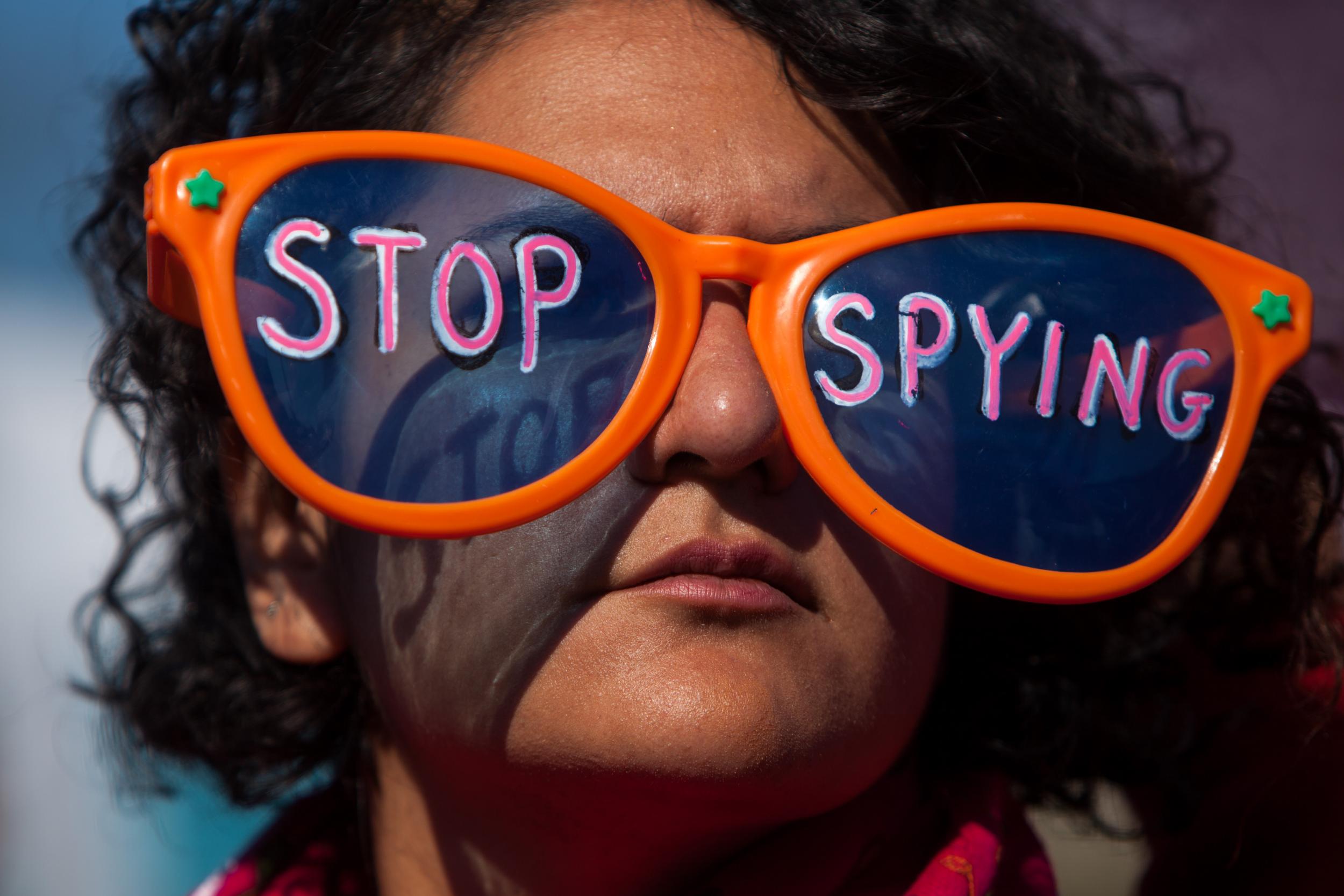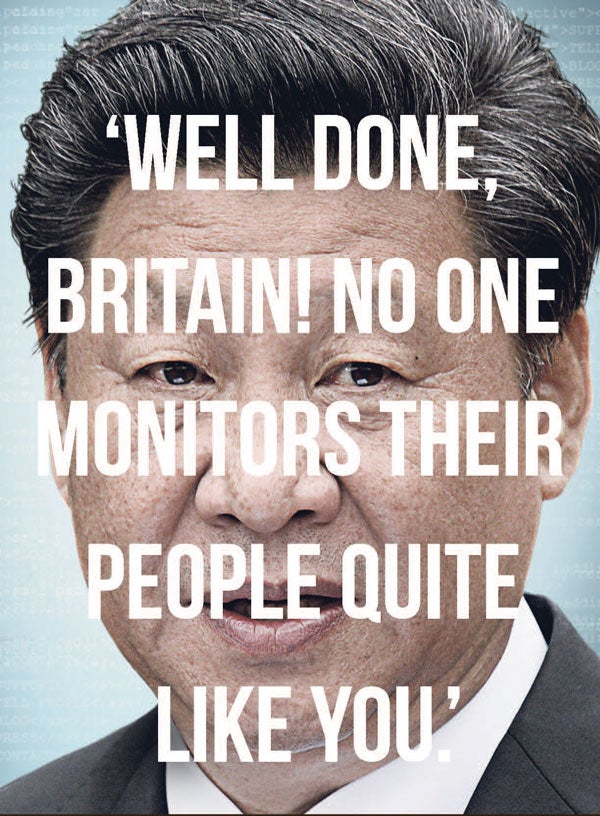Investigatory Powers Bill: Privacy campaigners launch petition against Home Office over new 'snooper's bill'
'Oppressive regimes are already following our lead,' says Don't Spy On Us coalition

Privacy campaigners have launched a poster campaign and petition against the Home Office's Investigatory Powers Bill (IPB), the successor to the 'Snooper's Charter'.
The campaign set up by the Don't Spy On Us coalition, have made posters featuring photographs of Russian President Vladimir Putin and Chinese Premier Xi Jingping.
Written over their portraits are the statements "Well done Britain! No-one monitors their people quite like you" and "A government that spies on its citizens. What's not to like?".

According to the campaign, the new government bill will allow police to read individuals' internet browsing history regardless of their innocence.
The group says police and intelligence agencies will be able to hack into smartphones and use their camera or microphone apps, while also getting the power to breaking into smart TVs, laptop or desktops.
The IPB would also make it illegal for people to tell a journalist they have been served with a surveillance warrant.
Eric King, director of Don't Spy On Us, said: "The UK government should be leading the way in guaranteeing safe and secure communications for everyone. Instead it is providing examples for dictators and across the world.
"When China introduced controversial sweeping surveillance powers just a few months ago its government claimed it was doing ‘basically the same as what other major countries in the world do.
"Oppressive regimes are already following our lead."

A Home Office spokesman had said the bill had been scrutinised by three different parliamentary committees, a special committee from both houses.
These powers will be subject to "double-lock" approval system where the Secretary of State and a senior judge are required to sign them off, according to the Home Office.
He said: "The Government is committed to introducing legislation that protects both the privacy and the security of the public.
"With the exception of the retention of internet connection records, the Bill does not create any new powers. Rather it puts existing powers on a clear and transparent footing, and creates world-leading oversight arrangements.
"Enhanced safeguards, which are at the heart of the Bill, will ensure this legislation protects both privacy and security."
Join our commenting forum
Join thought-provoking conversations, follow other Independent readers and see their replies
0Comments